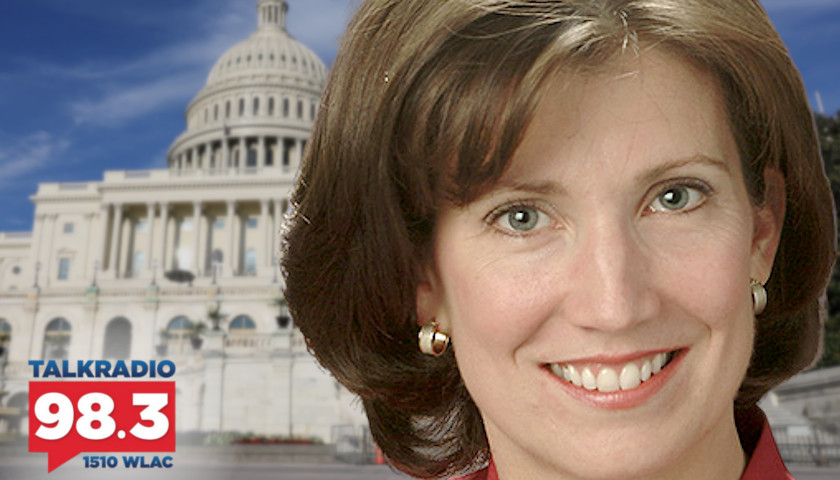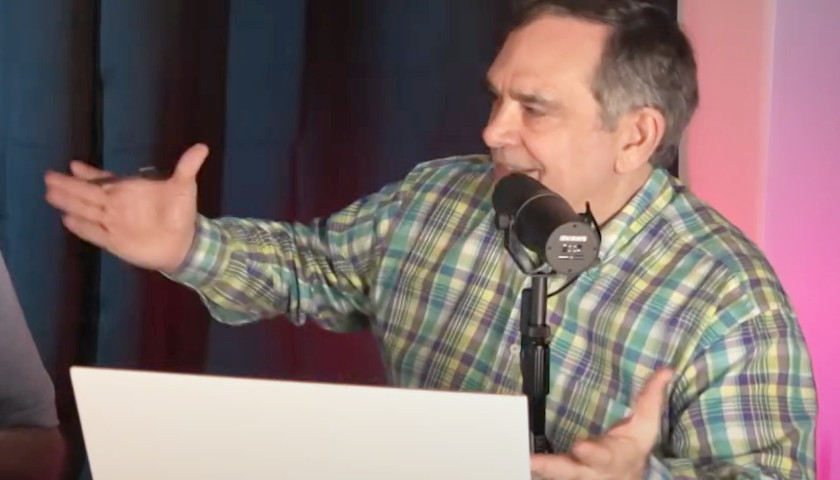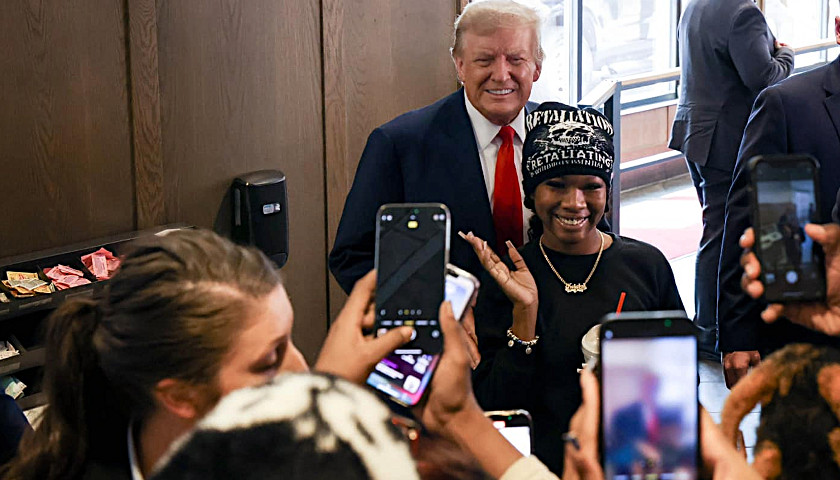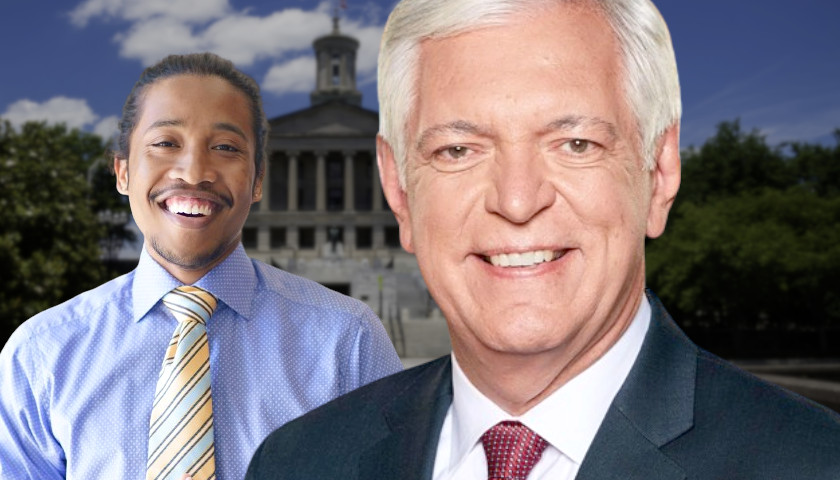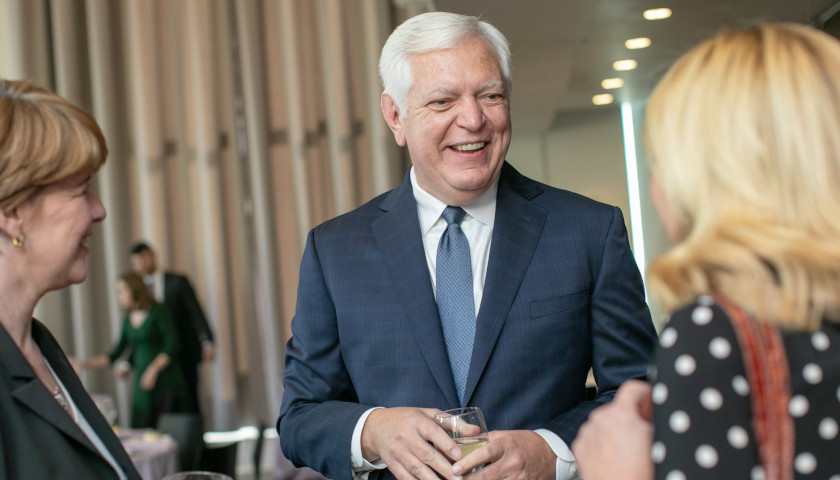Live from Music Row Tuesday morning on The Tennessee Star Report with Michael Patrick Leahy – broadcast on Nashville’s Talk Radio 98.3 and 1510 WLAC weekdays from 5:00 a.m. to 8:00 a.m. – host Leahy welcomed Tennessee state Representative Susan Lynn to the studio.
During the third hour, Lynn described her role on the board of directors and the mission of (ALEC) the American Legislative Exchange Council of that which would enable legislators nationwide to work on common policy issues and solutions that would serve as models.
Leahy: We are joined in studio by our good friend State Representative Susan Lynn. Good morning, Susan.
Lynn: Hey, good morning, Michael.
Leahy: Well, well, well. For those of you listening and saying what? Susan Lynn and Michael Leahy are friends? (Lynn chuckles) We are actually and we had some interesting policy disagreements way back when in 2017 on the sales tax. But that was 2017.
Lynn: Yes it was.
Leahy: We’re in 2021 and it’s a brave new world, unfortunately. We’re delighted to have you in here we want to talk about what’s going on in the Tennessee General Assembly. But also if you don’t mind I’d like to start off with something very interesting that you’re doing and it fits right in with our concept of the founder’s federalism as the next wave of the constitutional conservative populist movement. You’re with a group now… you are on the board of directors?
Lynn: On the board of directors.
Leahy: Of the American Legislative Exchange Council. Did I get that right ALEC?
Lynn: Yes.
Leahy: Tell us about ALEC and tell us about what it means to be on that board.
Lynn: Okay. Well, Alec is 45 years old as an organization. And what it is is a group that decided that we’re going to get state legislators together from all over the country and work on these common policy issues that we all face and develop legislative solutions to them. ALEC has different task forces and they work on different areas of interest. Whether it’s the economy or transportation or many different issues.
And they come up with model legislation. Then those legislators can take that model legislation back to their legislature and of course, customize it to their state and all of that. But pass that legislation. ALEC is tremendously successful at coming up with really good model legislation. ALEC is about states’ rights. It’s about economic freedom. It is about freedom in general. I met Milton Friedman at ALEC.
Leahy: Hanging with Milton Friedman. (Laughter)
Lynn: He was pretty old at the time but I was still thrilled to have met Milton Freidman. I was a task force chairman at ALEC for four years and I really loved that opportunity. And now they’ve circled back and it is about 12 years after I was a task force chairman or maybe 10 years. And they Circled back and they said Susan would you be on our board of directors?
We have a lot of work to do in our states. And you know what? ALEC comes knocking and there are only 15 members of this board. There are 50 states and only 15 members. And this board and they come knocking and asked you to be on the board of directors, you’d better say yes. They’re not coming around again too soon. There are a lot of other states. And I really look forward to working with the rest of the board and shaping the direction of ALEC.
Leahy: You’re in the right place at the right time it seems to me. One of the things that I’ve talked about Susan and you and I have been involved in various levels of the constitutional conservative populist movement. I was involved in the founding of the Tea Party movement. And that was many grassroots leaders around the country united around the principles of constitutionally limited government, free markets, and fiscal responsibility.
That kind of morphed into the Make America Great Again movement. And that had one leader Donald Trump. And we added American sovereignty and free and fair trade to it. In the events that have happened since the breaching of the Capitol on January 6, it seems to me, and this is my view, not yours, but that movement lost a little bit of the moral high ground because some of the participants there were MAGA supporters.
How did that happen? That’s a big long story, but I’m arguing that it’s time to go to another phase of the constitutional conservative populist movement. I’m calling it Founders Federalism. And the basic premise is for states to take back the powers that have been usurped by the national federal government. ALEC is well-positioned to do that.
Lynn: Yeah, and we have struggled to do that for years. I don’t know if you remember when the Tea Party started in Tennessee, but everybody called and clustered around my HJR-108. It was the state sovereignty resolution. I had seen one the previous summer and I said Lord willing if I’m re-elected I will file a state sovereignty resolution to tell the federal government to back off and respect the Tenth Amendment all of that. That resolution was all alone. All alone until I was on CNBC….
Leahy: Rick Santelli February 19, 2009.
Lynn: And it was like the cavalry had arrived for my little resolution. And guess what? It passed because even Democrats knew that the federal government was trampling on us.
(Commercial break)
Leahy: We’re going to talk about the Tennessee general assembly in our next segments. But in this segment, I’d like you to expand a little bit on your role as one of the 15 board members of the American Legislative Exchange Council. We’re talking about the importance of states asserting their sovereign rights and taking back those powers that have been usurped by the national federal government. Tell us what your next step is as a board member of Alec. Do you have a meeting? What happens with ALEC?
Lynn: Right? I have a meeting coming up with some folks later this month and we are going to talk about the direction this new board is going to take. And I want to stress to everybody listening. ALEC is someplace where you want your state legislator to go. At ALEC, you go there and you get an education on states’ rights, on freedom, on economic freedom, and on the Constitution.
And then policies are applied and you discuss different policies that apply or are applied against those principles. So it’s all about founding principles. And then we work with policy. So if you understand the founding principles, you got a policy issue you can find your way to a good solution. So ALEC is someplace where you want your state legislator to go. Sometimes people are resistant.
They call the state legislator and say they went on a trip and it was paid for by the General Assembly. Oh, I don’t want my tax dollars paying for that. You do want your legislator to go listen. We are all just citizen legislators. We don’t know very much when we first get elected. We really really don’t. And you want your state legislator to commit the time to understand our Constitution and understand our founding principles.
Leahy: And what I think is interesting is you have an opportunity to look at sort of model legislation. There are two areas that are of great interest to me right now. I think the future of our country hinges upon these two issues and like to get your reaction to them. Number one is election integrity. And number two is the efforts of Big Tech censorship.
Let me pose this question to you. As I was watching the outcome of the count and the presidential election I was shocked at the reticence of several state legislators. Georgia, Pennsylvania, Michigan, Wisconsin, Arizona to assert their constitutional of authority to be the arbiter of what election processes should be in each state. And so we saw like in Georgia, you know, they put drop boxes in.
That was by the state election board and it wasn’t by the state legislature. They did the centralization of tabulation areas. That wasn’t a law. That was again a very specific program put together by the private party called the Center for Technology and Civic Life funded by Mark Zuckerberg. The state legislature never convened and never did anything on it. And now they’re back in session. I don’t know what they’re going to do on election integrity. Can you give me some insights? And I know you’re not a Georgia state legislator, but why did the Georgia state legislature refuse to assert its constitutional authority in this process?
Lynn: Yeah, that is something I don’t know. I have no idea. I called an Arizona state senator and I gave him some ideas about how to detect illegal immigrants. It was based on a bill I had a long time ago and it did pass in Tennessee so that we could detect them a week kicked an awful lot off of our voter rolls. Honestly, state legislators need that education. We do have an election task force at ALEC. And we also have a task force on Big Tech.
Leahy: You have both of these?
Lynn: We have both of these already existing.
Leahy: So this is extremely interesting to me. So the election task force at ALEC, what are they going to do?
Lynn: Well in my mind’s eye what they will do is look at the states and what is the best policy and look at what went wrong. How did cheating occur and also look at how we can prevent that. And then model legislation and legislators can take it back and get it passed.
Leahy: What do you think is a timeline on that? Let me tell you where I come from. I come from this. I think that unless these unless state legislatures step up in this area, and now my personal feeling is I would like to see drop boxes eliminated for absentee ballots because I think there’s huge potential for fraud.
Lynn: Vote harvesting.
Leahy: Yes. Huge potential. And then I also I think that the absentee ballot has been widely abused and it should be very very limited. And also I think we ought to have in-person voting as much as possible. That’s what I think ought to happen. And I would be delighted to see these key states implement laws to that effect. How long does that process take?
Lynn: Well here’s the thing, at ALEC we have a library of model legislation. So any legislator right now can go online and look through the library of model legislation and find solutions to a lot of these issues. And these solutions have probably been passed in some states but they haven’t been passed in every state.
And then the task forces will start their work. So right now the task forces are getting together and they’re talking about the issues. They’re going to have speakers come in and explain what went wrong. How did it happen? Why did it happen? There will be Georgia legislators there who stand up and go duh, I don’t know what was going on.
Leahy: By the way, I think that’s exactly what they’re going to say.
Lynn: I think so too.
Leahy: I don’t know what happened.
Lynn: I don’t know what? I don’t know that happened. I kept looking for somebody else. I thought somebody else would say something. That’s probably what will happen. But they will very quickly form. We meet three times a year, but those task forces work in between so they will very quickly form model legislation that will probably be ready by December and also with legislation that currently exists that will be highlighted and brought up to the front. Legislators are emailed with policy ideas constantly. You just hope they don’t delete those emails. They are emailed with these policy ideas and solutions and hopefully, they’ll listen.
Leahy: So I’m going to recommend an expert witness to come to your election task force at ALEC if you talk to your folks there. Phill Kline is the head of the Amistad Project of the Thomas More Society and a Liberty University Law Professor. A very great guy. And so I would just recommend that to you.
I want to bring up the other big area Big Tech censorship and I’ll bring up one piece of legislation. I saw a story at Breitbart. North Dakota legislators have introduced a bill to allow North Dakota residents to sue Facebook and Google that censor them. And the argument there is that Section 230 of the communications Act of 1996 wait for it…is unconstitutional. What do you think of something like that?
Lynn: I think they ought to go for it. I think they ought to go for it and it may end up in court and that’s where they can prove that Section 230 is unconstitutional.
Leahy: That’s an interesting argument. There is a guy named Vivek Ramaswamy who made a ton of money in pharmaceuticals. And he basically has argued the reason that Section 230 is unconstitutional is that it essentially makes Google and Facebook State actors who are then depriving people of their First Amendment right. An interesting argument I think.
Lynn: Absolutely. Can I ask you about a policy idea?
Leahy: You bet.
Lynn: All right. So all of the vote fraud that is claimed certainly they had to cast those votes and claim that a voter cast those votes. as a person who runs for office, I can tell you A lot of people register as a motor voter and they never cast a vote. They registered years ago and they have never voted once but they are still on the voter rolls. It is my suspicions that what they did was they know who those people are who registered motor voter and they’ve never cast a vote and they checked off their name as having cast a vote.
And they didn’t cast a vote. So that’s asymmetric information. As a voter I know I cast a vote. As a registered voter but I didn’t vote I don’t know that I was voted. Here’s the idea. That every state election commission and a local election commission posts the names of everybody in the community who came and cast a vote. That way if you did not cast a vote and one was cast for you, you can look online and say wait, I didn’t cast a vote. Then you go to the election commission and you sign an affidavit and then that is investigated. And if you get enough votes to make a difference like in Georgia…
Leahy: Yeah, and that’s one element of it. I think that actually in some states they can do that, but it’s just very very hard to find out all the details and they come late etcetera, etcetera.
Listen to the third hour here:
– – –
Tune in weekdays from 5:00 – 8:00 a.m. to the Tennessee Star Report with Michael Patrick Leahy on Talk Radio 98.3 FM WLAC 1510. Listen online at iHeart Radio.

